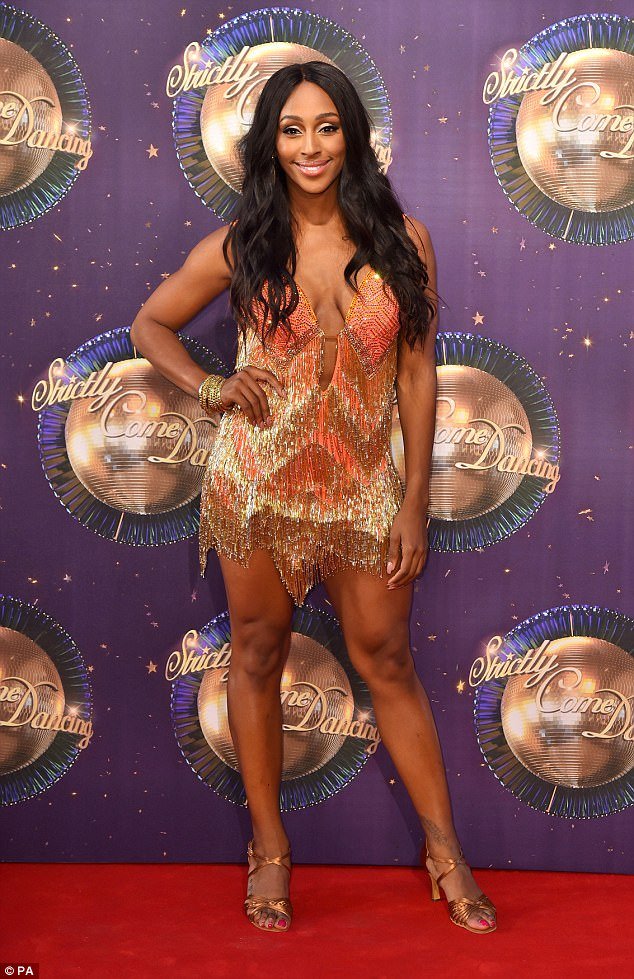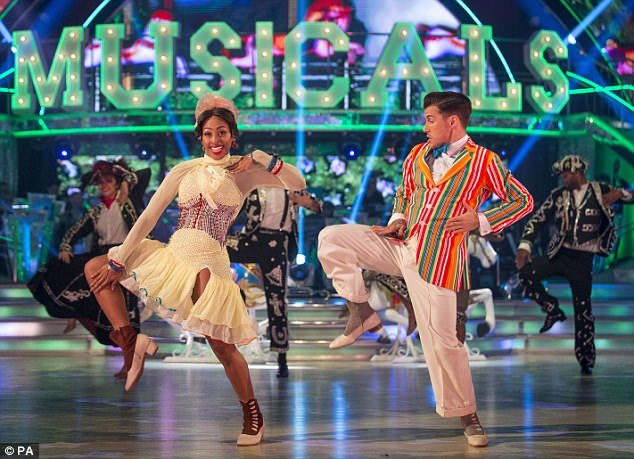'Alexandra Burke is too black to win Strictly': Academic claims show is racist and singer's unpopularity is due to viewers believing ballroom dancing is a 'white' performance art
- Alexandra finished in bottom two for last two weeks, despite getting high scores
Despite either consistently topping the leader board or scoring highly, Strictly Come Dancing contestant Alexandra Burke has found herself languishing in the bottom two for the last two weeks.
The former X Factor star has also faced a backlash from viewers, who have branded her 'fake' for becoming emotional after some of her performances.
Now an academic has told FEMAIL that the real reason Alexandra Burke has become so hated on the BBC dancing show is simply down to the colour of her skin.
Professor Shirley Tate, from Leeds Beckett University, said that race is a 'massive factor' in her unpopularity in the ballroom dancing contest - which she argues is still perceived as a 'white' performance art.
While Alexandra, 29, won The X Factor in 2008, the race expert said that this was a 'different arena' to Strictly - with the former champion fitting the 'stereotype' that as a black woman she should 'be a good singer'.

Professor Shirley Tate has said that race is a 'massive factor' when it comes to Alexandra Burke's unpopularity on this year's Strictly Come Dancing
She also noted that viewers who branded Alexandra 'over-the-top' appeared to be judging her for getting 'too emotional', when they would not with her white competitors.
The Strictly race row has returned this year after Alexandra and fellow contestant Davood Ghadami - the only two non-white celebrities left in the competition - ended up in the bottom two, despite the former X Factor star topping the leaderboard.
Alexandra is one of the five celebrities who will compete in the semi-finals this weekend.
Speaking to FEMAIL, Professor Tate said: 'I would have to say that race would be a significant factor [with regard] to why Alexandra Burke ended up at the bottom.
'It’s not really based on her skills as a dancer, race outweighed her excellence in terms of how people judged. Irrespective of her talent, people will vote against her.'
Every year aside from three - 2008, 2010, and 2015 - a black or mixed-race contestant has placed either first or second on Strictly.

Still the expert argues that the significant contrast between Alexandra's success on The X Factor and her unpopularity on Strictly was due to stereotypes about black women.
'The stereotype is that she should be a good singer, but for something that is about ballroom, the expectation still is that it should be a white body that occupies that space, or a light-skinned one that can pass more easily,' Tate explained.
'Race will always have an impact on how she’s perceived by the audience, as she is inhabiting what they still see as a white performance art.'
While Alesha Dixon, who is mixed race, has previously won Strictly Come Dancing, Tate puts her contrasting success down to the fact that she fits in more with a 'white perception' of beauty.
'A lot of my work, and a lot of other academic work, shows that lighter-skinned black women are much more acceptable to a wider audience than darker-skinned black women,' she said.